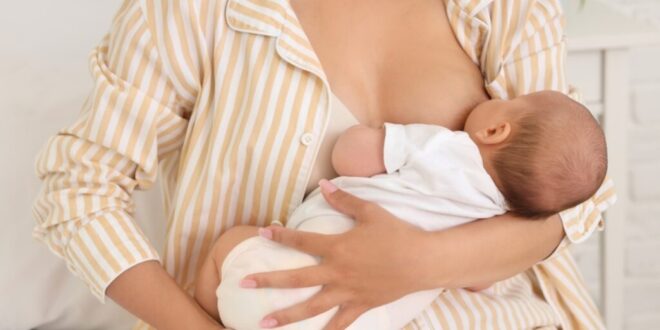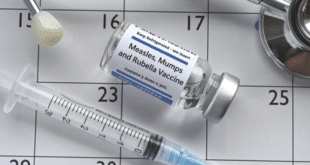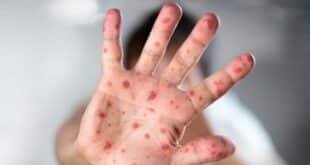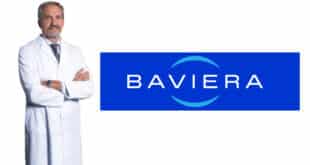Breastfeeding. Credit: Pixel-Shot, Shutterstock
Europe has the lowest rates of breastfeeding in the world, even though it’s proven that breastfeeding protects mothers and babies for a long time.
In an effort to change this, a growing EU initiative is trying to make breastfeeding support not only personal but also a collective responsibility.
Launched on World Breastfeeding Week The “Baby Friendly Community and Health Services Project” is being implemented in seven countries starting August 1: Greece, Italy. Lithuania, Norway. Slovenia. Spain. Ukraine. The project is already proving successful in Norway. It was named an EU Best Practice for 2022.
“Our ambition is to bring the WHO–UNICEF standard beyond the hospital setting,” said Anne Bærug from the Norwegian Directorate of Health. “We want to pilot actions outside health services, especially in less advantaged areas, to create breastfeeding-friendly environments” (WHO Europe).
Breastfeeding reduces the risk of breast and ovarian cancer in women and protects infants from obesity, diabetes and other noncontagious illnesses. In many places, formula is still the standard feeding method despite its lifelong benefits.
Angela Giusti of the Italian National Institute of Health stated that “we frame breastfeeding as a benefit, rather than naming formula feeding’s real risks.” Why don’t talk about the missed exposures and protections related to formula? We are often misrepresented when we speak out, making it seem as though we are against women and freedom of choice. We are saying that the society needs to change to empower women to breastfeed, if that is what they choose. Not leave them to navigate a system which makes it more difficult at every step.
Formula-fed children are more likely to develop gastrointestinal disorders, infections, or other long-term health problems. Babies who are fed formula have a higher incidence of obesity, asthma and allergies.
Calabria (Italy) offers community-based solutions for normalising breastfeeding
The initiative is being implemented in Calabria, an area with a high rate of childhood obesity, low breastfeeding rates and five community health centers. It also includes two hospitals and 29 municipalities.
The smallest changes make a significant difference. As an example:
- In nurseries, parents can now leave their expressed breastmilk with teachers for them to feed to the children. Teachers have been trained on how to store and serve the milk safely.
- Local workers – including supermarket cashiers and hairdressers – are being encouraged to support parents however they can.
Giusti stated that “anyone who interacts directly with families has an important role to play.”
Europe lacks basic breastfeeding data
In spite of decades of research, most European health systems still undervalue breastfeeding. Many countries don’t even collect basic data on breastfeeding rates – a sign of how little priority the issue has received.
WHO/Europe has been working with local authorities to address this issue.
- Monitor key indicators to track progress
- BreastFEEDucation is a new online platform that will improve the training of health professionals.
- Closure of regulatory loopholes, in particular around digital marketing breastmilk alternatives.
“Right now, companies selling breastmilk substitutes are sponsoring events for health professionals – a clear conflict of interest,” said Bærug.
When you look at the bigger picture, breastfeeding isn’t just about parenting – it’s about future public health.
It was the hardest thing I’ve ever done. It was a difficult decision, but I have no regrets. The hardest part of nursing her was weaning. I wrote a blog post about how I did it using The Dr Jay Gordon method.
Is the saying true or false? Breast is the best option? Or should babies just be fed – whether that’s formula or breastmilk? Tell us what you think below.
All health news.
All European News.
 Costa News Spain Breaking News | English News in Spain.
Costa News Spain Breaking News | English News in Spain.







